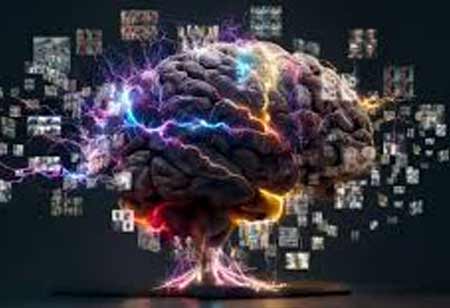Is Artificial Intelligence The Future Of Mental Health?
Human connections, productivity, and general well-being are all significantly impacted by mental health.

By
Medical Care Review | Tuesday, July 11, 2023
Stay on top of your health and well-being with exclusive feature stories on the top medical clinics and treatment centers, expert insights and the latest news delivered straight to your inbox. Subscribe today.
Integrating AI into mental health care holds promise for improving patient outcomes and enhancing the efficiency of mental health services. By leveraging AI technologies, mental health professionals can provide more personalized and effective interventions, ultimately contributing to better overall well-being for individuals and communities.
Fremont, CA: Human connections, productivity, and general well-being are all significantly impacted by mental health. Supporting and giving attention to mental health is crucial for managing everyday stress, contributing to our communities, sustaining social networks, and fostering creativity.
Worldwide stress levels and the prevalence of psychiatric disorders have increased due to urbanization, economic pressures, and the fast-paced nature of modern life. Thankfully, in the last ten years, more people have gained knowledge and understanding about mental health. Nowadays, the majority of people understand that mental illness and intelligence are two distinct concepts.
AI's Transformative Effects
Behavioral and mental health professionals can address ongoing mental health issues by utilizing artificial intelligence in their work. AI improves patient experience by automating tedious and repetitive tasks. It can greatly enhance patient care and expertise in various areas.
Customization
Today, therapists can comprehend a patient's language and linguistic patterns using Natural Language Processing (NLP). NLP models help customize interventions and therapies to fit each individual's requirements and circumstances by identifying distinctive indicators in language, such as certain cognitive biases or thought patterns.
Monitoring Symptoms and Development
NLP models can assist therapists in monitoring their clients' development by identifying alterations in speech patterns. AI can detect subtle variations in a patient's speech that may indicate their emotional or psychological state. Additionally, cognitive behavioral treatment extensively utilizes AI, offering adaptive interventions and real-time feedback during therapy sessions. AI modules can modify patient care tactics and provide new coping strategies by continuously monitoring the individual's development, behavior, and responses.
Flow Management for Patients and Accurate Diagnostics
AI significantly reduces wait times and optimizes patient flow in hospital settings. NLP and other technologies benefit physicians as well. AI can effectively evaluate and screen patients for indicators of conditions like depression and anxiety disorders. It can also provide digital treatments, including guided exercises, interactive modules, and feedback mechanisms to assist patients in learning coping methods and managing their symptoms.
Furthermore, AI can utilize patient data for medication management, search clinical databases for research and insights, and monitor mental health to support treatment.
Integrating AI into mental health care holds promise for improving patient outcomes and enhancing the efficiency of mental health services. By leveraging AI technologies, mental health professionals can provide more personalized and effective interventions, ultimately contributing to better overall well-being for individuals and communities.







